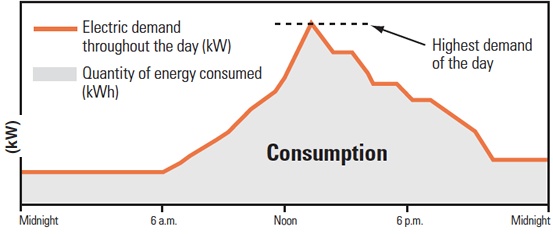the rate, measured in kW, at which electricity is consumed on an instantaneous basis. Compare to energy consumption (measured in kWh), which represents the quantity of energy consumed over a certain period of time. The “demand charges” seen on electric utility bills correspond to a customer’s peak usage; this portion of the bill is used to ensure that there will be sufficient resources to meet peak demands across the system (e.g. during a polar vortex or heat wave).
Pros
Anyone on the grid can provide demand management services.
Cons
Not being able to control demand results in expensive infrastructure investments.
Real Talk
Electricity demand management should be central to any plan. In an ideal scenario demand would be a constant, or at least consistently predictable.

